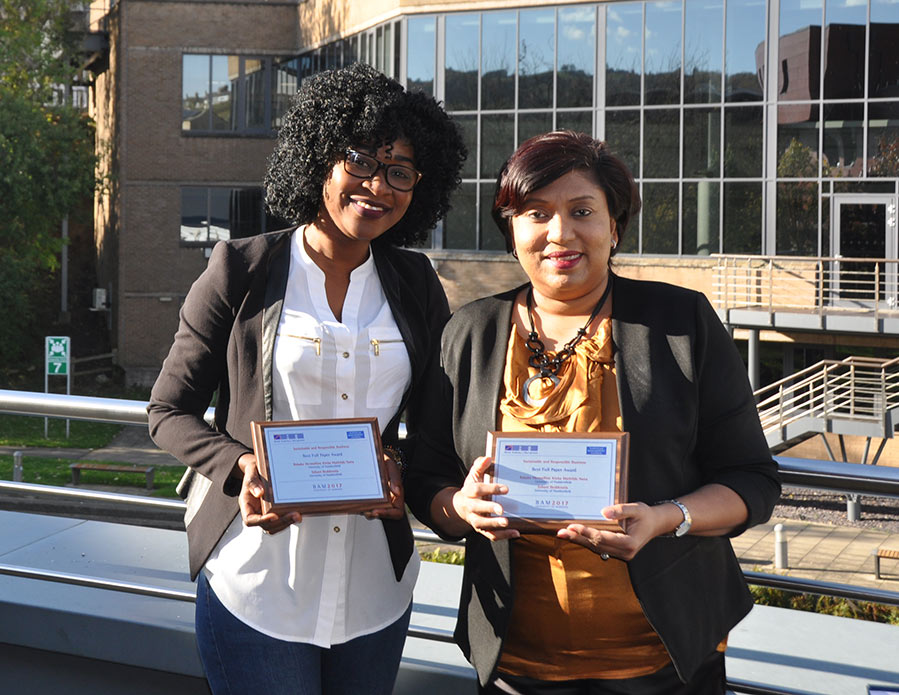September saw the BAM2017 (British Academy of Management) conference held at the University of Warwick where two of our Business School researches won awards.
Both Rabake Nana and Matthew Snell, along with their collaborators, picked up prizes for their research papers at the awards and have offered us some insight into their papers, how it felt receiving their awards and what’s next for them.
Rabake’s paper focused on examining the interactions between multinational corporations (MNCs), national governments and non-governmental organisations (NGOs) in relation to sustainable development in West African societies. It aimed to contribute to the growing interest in how foreign investments into this region impacts upon sustainable development. Drawing on mining MNCs subsidiary operations in three targeted West African countries, the objective is to contribute to the understanding of firm-level CSR strategy implementation within least developed countries’ mining industry and its role in meeting sustainable development goals. Her main motivations to writing this paper, were to contribute to the scarce CSR literature in Africa, more specifically in West Africa.
 Rabake Nana (left) and Dr Eshani Beddewela (right), along with their collaborators, picked up prizes for their research papers at the Best Paper Success at 2017 BAM Awards
Rabake Nana (left) and Dr Eshani Beddewela (right), along with their collaborators, picked up prizes for their research papers at the Best Paper Success at 2017 BAM AwardsRabake wanted to thank her collaborator, Dr Eshani Beddewela, by stating that “Her guidance, suggestions and recommendations really opened the path to this award.”
She hopes to successfully complete her PhD, as she says that “Where I come from, opportunities to do PhD’s for women is not very frequent, so I will use this opportunity to be a source of inspiration for my younger sisters back home.”
Matthew’s paper, along with his collaborators, Dr Omar Al-Tabbaa and Dr Adrian Wood focused on a specific challenge faced by social enterprises, particularly those operating in developing countries. These social enterprises have to balance the relative ease and economic confidence that comes from working with businesses and individuals who comply with contracts and legal guarantees, i.e. those traditionally classed as part of the formal economy, against the relative complexity but greater social gains of working with individuals who do not comply with such contracts and guarantees but who are poorer and more vulnerable. The research aimed to explore the ways in which social enterprises navigate this paradox alongside the many other challenges they face. His motivation for this subject came from having spent time with a social enterprise that sells subsidised solar lights in Africa.
Matthew said he felt surprised and pleased having received the award and that it “has given me a boost in confidence and the desire to push on with the research.” He also praised his primary supervisor, Dr Omar Al-Tabbaa, by stating that he provided “excellent, guidance, support, ideas and drive.” He hopes to complete his PhD and expand the developmental paper into a more complete piece of work.
